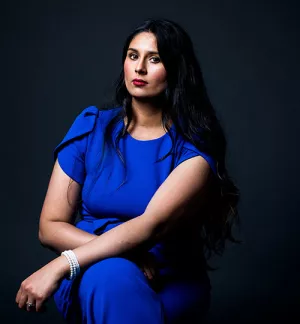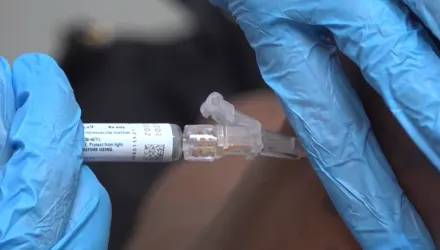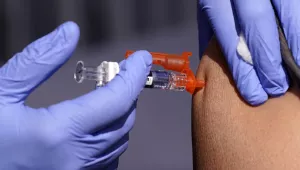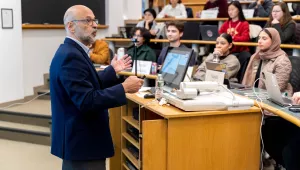From the beginning of the coronavirus pandemic, we’re been inundated with mis- and disinformation. It has highlighted the critical role of scientific risk communicators and the ability to provide timely, accurate, and comprehensible guidance.
The World Health Organization defines risk communication as “the exchange of real-time information, advice and opinions between experts and people facing threats to their health, economic or social well-being. The ultimate purpose of risk communication is to enable people at risk to take informed decisions to protect themselves and their loved ones.”
Outbreak after outbreak if we’ve learned one thing it is this – science and risk communication are essential. We cannot expect the public to understand what is going on, or to change their behaviors, if we don’t communicate effectively. Simple public health measures like wearing a mask are not followed and worse, politized.
The Centers for Disease Control and Prevention, an established national public health agency has its own mantra on risk communication: Be first, be right, be credible. But the landscape of risk communication is changing from the older, top-down model. More and more often, independent scientists, researchers, public health professionals, clinicians, and even trainees are being called on to help the public understand and make sense of rapidly evolving information. Many people in all of these groups have been on the frontlines of risk communication using multiple communication modalities, from social media to TV segments, to fill a glaring gap in a world-wide public health crisis. What mantra or guiding principles should they be using to help guide their risk communication?
We propose three guiding principles every risk and science communicator should follow to provide facts, share evidence and science-based information, and manage rumors, misinformation and disinformation.
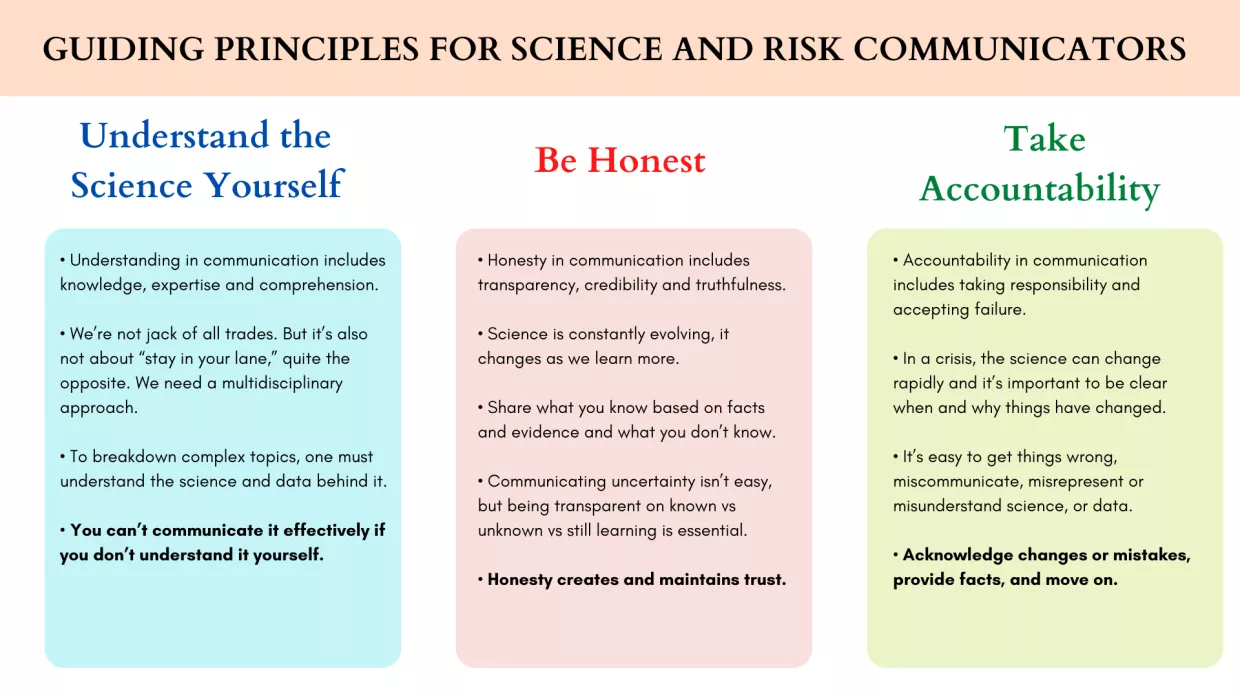
Madad, Syra and Eleanor J. Murray. “Guiding Principles for Science and Risk Communicators.” Belfer Center for Science and International Affairs, Harvard Kennedy School, July 27, 2021


